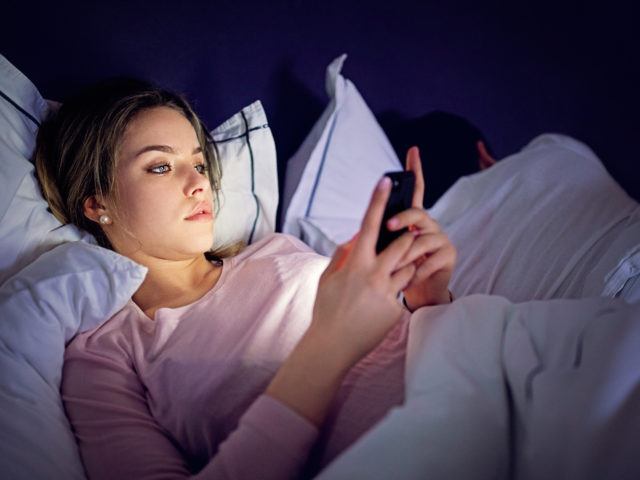Children and teenagers are spending an increasing amount of time directly in front of glowing screens. From the computer screen for homework and school projects, to their smartphones for connecting with friends via social media, text messaging, etc., this extensive and prolonged exposure to screens throughout the day every day can lead to insomnia – and, in some cases, depression.
For parents, it is beneficial to your child to monitor the time they’re exposed to these devices. It is a good idea to not allow smartphone use during family dinnertime, for example; they can reply to their friends later. (And the parents must do the same and model the behavior!)
Below, we discuss a key study that has proven how overexposure to electronic devices can be crippling to your children’s mental development.
Can Electronics Cause Depression?
A study presented at SLEEP 2018, the 32nd annual meeting of the Associated Professional Sleep Societies, showed that the reported rise in insomnia and depressive symptoms in adolescents has been linked to an excessive amount of exposure to electronics every day, and also linked to reduced sleep duration or restless sleep.
This sleep study examined several activities performed by adolescents on devices and how these activities affect their sleep quality and mood. A total of 2,865 adolescents, averaging between the ages of 15 to 16, were given a survey. They were asked about their sleeping habits, such as issues falling asleep, problems staying asleep, and the amount of sleep they normally receive.
These students were also given a clinical screening test for depression, known as the CES-D test (the Center for Epidemiologic Studies Depression scale test). Teens reported the quantity of hours they spent participating in these four electronic activities: social messaging, web surfing, TV/movies, and gaming.
The results of the tests suggested that lengthy periods of social messaging, web surfing and TV/movie watching led to an increase in symptoms of insomnia and less sleep. This lack of sleep led to an increase in symptoms of depression.
The test also suggested that an increased amount of time of each activity is directly linked with even less sleep, leading to additional depressive symptoms.
Can I Help My Child Sleep Better?
Dr. Stella Xian Li, a postdoctoral researcher at Stony Brook University, stated, “Higher rates of depressive symptoms among teens may be partially explained through the ubiquitous use of screen-based activities, which can interfere with high-quality restorative sleep.”
Sleep-medicine studies have also showed that the strongest influence of depressive symptoms was gaming, in comparison to messaging. So it is a good idea to limit the amount of time your child engages in gaming, and instead go outside with your child and play basketball or do something they enjoy.
Professor of Family, Population, and Preventive Medicine at Stony Brook Medicine, Dr. Lauren Hale, said she hopes that the eye-opening results of this study can be used to inspire parents to moderate their children’s use of personal electronics.
“These results suggest that parents, educators, and health care professionals could consider educating adolescents and regulating their screen time, as possible interventions for improving sleep health and reducing depression,” Hale said.
Sleep Doctor in Charlotte
If your child has been experiencing insomnia, difficulty sleeping, or depressive symptoms, seek the help of a certified sleep medicine doctor. Dr. Jeannine Gingras specializes in sleep disorders, and she is a renowned leader in the field across the nation and with international acclaim.
Promising better nights and brighter days, she’ll customize a treatment plan to suit the needs of your child – whether it’s addressing sleep apnea or breathing disorders and beyond. Call us at Gingras Sleep Medicine today at (704) 944-0562 or fill out our appointment request form here, and we can help you put sleep struggles to bed once and for all.

